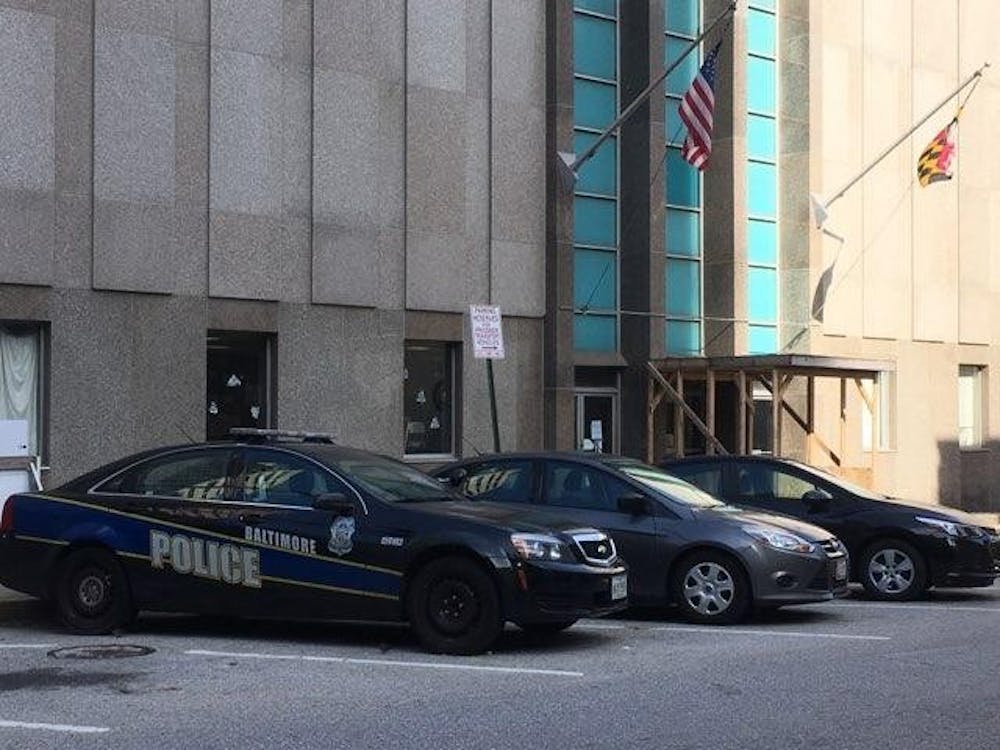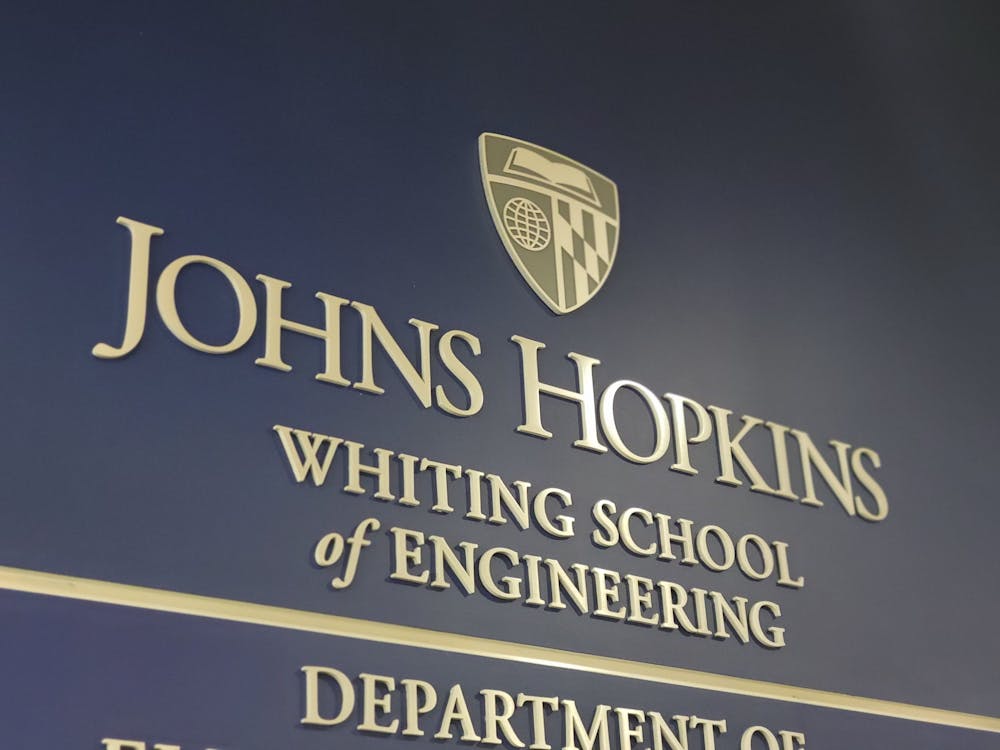This article is part of our special issue on policing.
University officials released the first draft of a bill that would grant Hopkins the authority to establish its own police force on Wednesday. The News-Letter also independently obtained an earlier draft of the bill that same day. The draft is the first piece of proposed legislation released to the public since March 2018 and includes several revisions, such as the creation of an Accountability Board, an expanded definition of “campus area” and a timeline for implementing a police department.
When asked whether administrators expect a version of the bill to pass this legislative session, Vice President for Communications Susan Ridge stated that they believe that lawmakers will support the University’s goals to increase safety on and around campus. Ridge further explained that University officials feel that they have adequately addressed legislators’ concerns from 2018, citing the 125 community stakeholder meetings, three discussion series and two open forums that Hopkins has hosted over the past months.
“We believe Maryland’s legislators share our desire to find solutions to reducing violent crime in Baltimore, and that after reviewing the Interim Study Report they will come to the same conclusion: that a small, university-based, community-oriented and research-backed police department – one that is authorized by the state and accountable to the public and to local government – is essential for Johns Hopkins and would significantly contribute to the safety of our city and the communities around our campuses,” she wrote.
However, many students, faculty and community members are frustrated with the draft bill and feel that their concerns have not been sufficiently addressed. Some have expressed concern that the proposed police force will not be accountable to the public and that administrators have not been transparent in their efforts to establish a police department.
In a statement sent to The News-Letter, members of the group Students Against Private Police (SAPP) criticized University officials for failing to build trust with concerned students and community members.
“The administration continues, as they have throughout this whole process, to be vague, to avoid transparency, and to make the bare minimum of gestures towards the dialogue residents and students have been trying to engage them in,” the statement reads. “They co-opt the language of accountability, of de-escalation, and of protecting marginalized communities and survivors of sexual assault without substantially demonstrating how they will address any of these issues.”
SAPP specifically took issue with the bill’s proposed Accountability Board, which would comprise 15 community members, including students, faculty, staff and residents. The Board would include at least one community representative who is unaffiliated with the University from the neighborhoods adjacent to the Homewood Campus, East Baltimore Campus and Peabody Campus.
However, critics have pointed out that there are several other neighborhoods near the various Hopkins’ campuses; Homewood, for example, is bordered by Remington, Charles Village, Oakenshawe and Wyman Park, to name a few.
In response, Ridge stated that University officials would solicit applications for the Board to “ensure that its members represent the diversity of our community.” She also noted that the Board meetings would be open to the public and that the mayor and city council would also appoint members to the Accountability Board.
The bill also expanded on the definition of campus area. Without special permission from the mayor, University police officers would only be allowed to operate on campus area, which is defined as a space owned, leased or operated by Hopkins, used for educational or institutional purposes, or public property adjacent to the campus like sidewalks or thoroughfares.
University officials have not yet announced a sponsor for the bill, though Ridge wrote that officials hope for bills to be formally introduced in both the House and Senate this legislative session.
According to Ridge, if the bill passes in the General Assembly, recruitment, hiring and training would begin in late 2019 or 2020 with the goal of building the department to reach a capacity of around 100 officers within the first five years.
Proponents of the private police force include Maryland Senate President Mike Miller and Hopkins alumnus Michael Bloomberg. However, others, like State Senator Mary Washington, are outspoken critics of the proposed police force.
Washington represents the 43rd Legislative District of Maryland, which includes the Homewood Campus, and expressed her concerns with the draft bill in an email to The News-Letter.
“A JHU police department and police officers with direct legal authority from the State of Maryland to operate as a police force and are employees of Johns Hopkins University, are accountable to the JHU Board of Trustees and its donors,” she wrote. “This is the purpose from their website — ‘preserves and augments its physical and financial assets.’ The police force would therefore be charged primarily to support these ends.”
Washington also took issue with the proposed memorandum of understanding (MOU) included in the draft. MOUs are typically legal agreements that outline the relationship between two entities and are often used between university police forces and city police departments. Washington had previously proposed an MOU for a special unit of the BPD to patrol near the campus.
The draft bill states that an MOU between the University and the Baltimore Police Department would be posted online for public comment. Residents would also be able to share feedback at community forums. Ridge explained that the MOU is necessary for Hopkins to create its own police force.
“If a final MOU is agreed to by all parties, the university will publicly post a copy online. Without an executed MOU, JHU would not be permitted to establish a university police department,” Ridge wrote.
In the meantime, Washington wrote that she will propose a bill which would create a public, not private, police force for the University. She also wrote that students and community members can connect with their State and City representatives, contact the Hopkins Board of Trustees and write letters to the editors of major publications to better inform lawmakers about their viewpoints.
Executive Vice President of the Student Government Association (SGA), AJ Tsang sees the bill as evidence that University officials responded to concerns that students had raised. He noted in particular that the draft bill included details on recruiting and hiring initiatives to promote diversity as well a discussion on training to prevents bias and profiling against minorities. However, he emphasized that Hopkins officials need to work to include more community members in the decision-making process going forward.
“The University really needs to hold fast to its promise of including more stakeholders in the process,” he said. “[It] needs to demonstrate that it can garner the public engagement and trust first to make the decision why to even have an independent police force. And after that, if it happens, it would be something that’s fully accountable to the Hopkins community and the wider Baltimorean public.”





